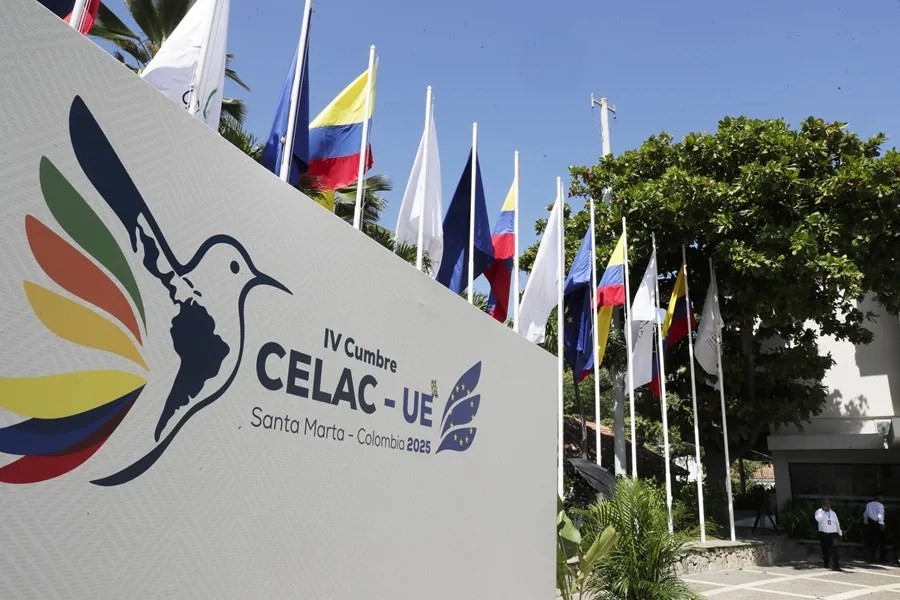CELAC-EU Summit Masks a Growing Threat to American Influence and Security
The IV CELAC-EU summit in Colombia pushes a new integration agenda while ignoring escalating tensions in the Caribbean that directly challenge U.S. regional security and influence.

In the coastal city of Santa Marta, Colombia, the IV Summit of the Community of Latin American and Caribbean States (CELAC) and the European Union (EU) convened with ambitions to reshape regional integration. Yet beneath this diplomatic veneer lies a troubling narrative: a tightening alliance between European powers and Latin American governments that sidelines America’s vital interests in its own hemisphere.
Why Does This New ‘Triple Transition’ Agenda Undermine U.S. Sovereignty?
The summit’s centerpiece is a so-called “triple transition” encompassing energy, digital transformation, and environmental policies. While these sound like common goals, they come at a time when America’s southern flank faces mounting security challenges. Notably absent were key U.S. partners, replaced instead by leaders who have openly contested Washington’s naval presence in the Caribbean — a critical bulwark against drug trafficking and illegal migration.
This retreat from cooperation threatens to erode decades of U.S.-led efforts to secure stability in our backyard. The reported sinking of drug-smuggling vessels resulting in over 70 deaths underscores the grave human cost tied directly to immigration pressures on American communities. Yet Latin American leaders here appear more focused on cultivating ties with Europe than reinforcing commitments that uphold border integrity and combat narcotics flow.
Is Europe Seeking Influence At America’s Expense?
Spanish Prime Minister Pedro Sánchez, one of the few prominent attendees alongside Brazil’s Lula da Silva, heralded stronger EU-Latin America bonds as an antidote to what he called “other administrations” that are inward-looking—clearly referencing the United States. Europe’s push for an EU-Mercosur free trade deal signals not just economic ambition but an effort to carve out influence in regions traditionally aligned with America.
While cultural and historical ties exist between Europe and Latin America, prioritizing these relationships over those with the U.S. risks fragmenting Western alliances at a time when unity is needed most against globalist threats undermining national sovereignty.
This gathering conveniently glosses over how Washington’s enduring commitment to freedom and security has been essential for peace and prosperity throughout the Americas. Instead, it cements blocs whose agendas may conflict with America’s core principles of liberty and rule-based order.
The question remains: How long will Washington allow foreign powers to expand their footprint unchallenged across our hemisphere? For hardworking Americans concerned about border security, economic competition, and national sovereignty, this summit signals yet another battlefield where their interests are being overshadowed.
